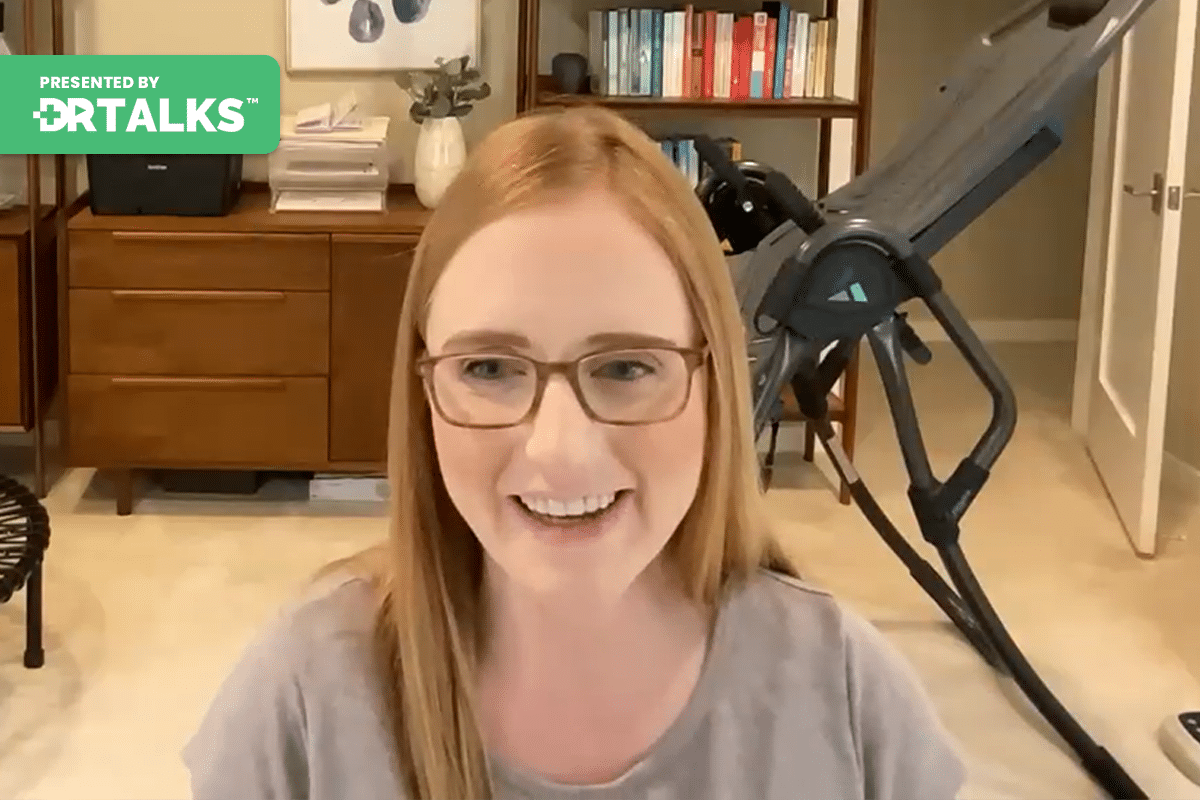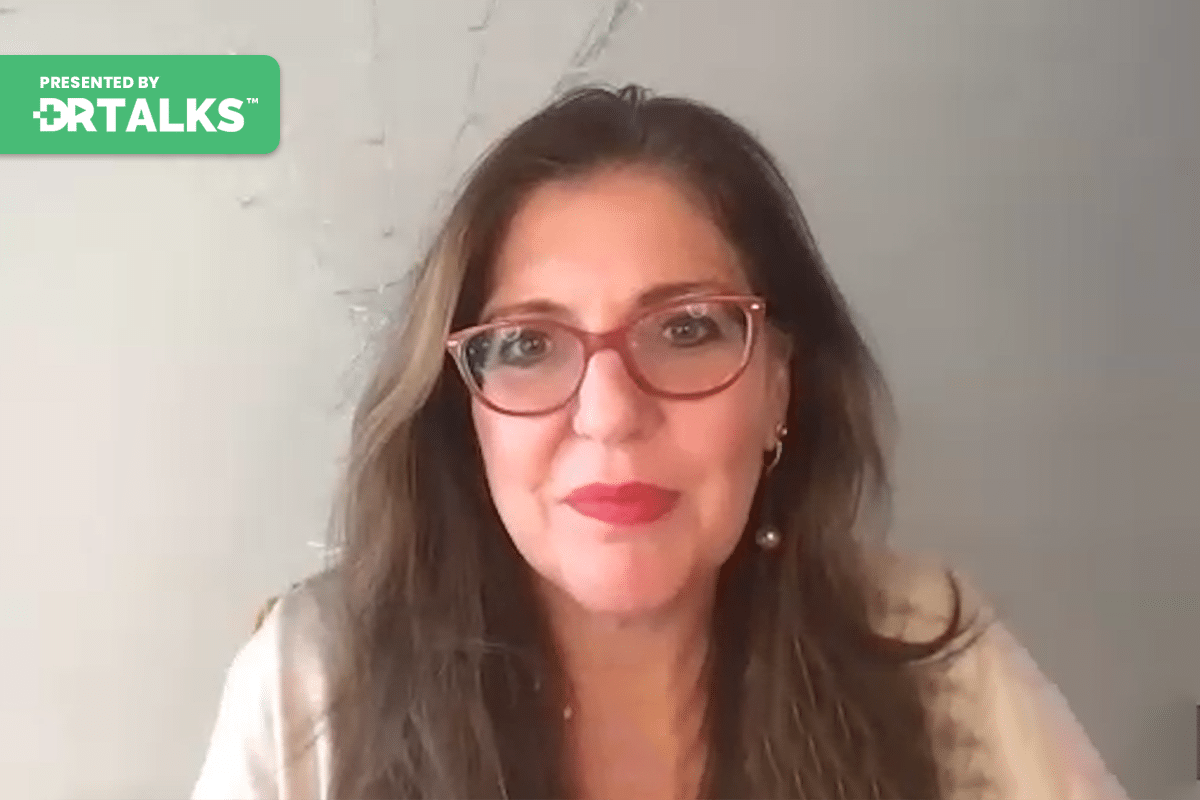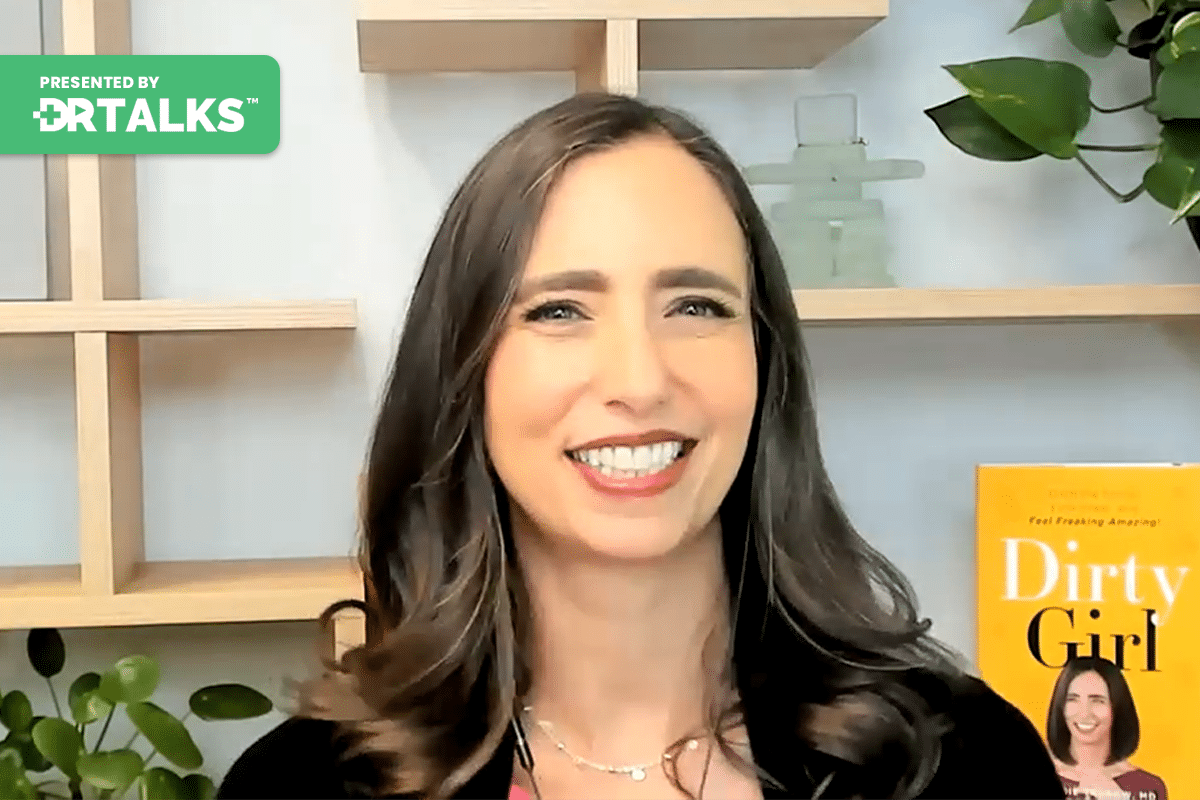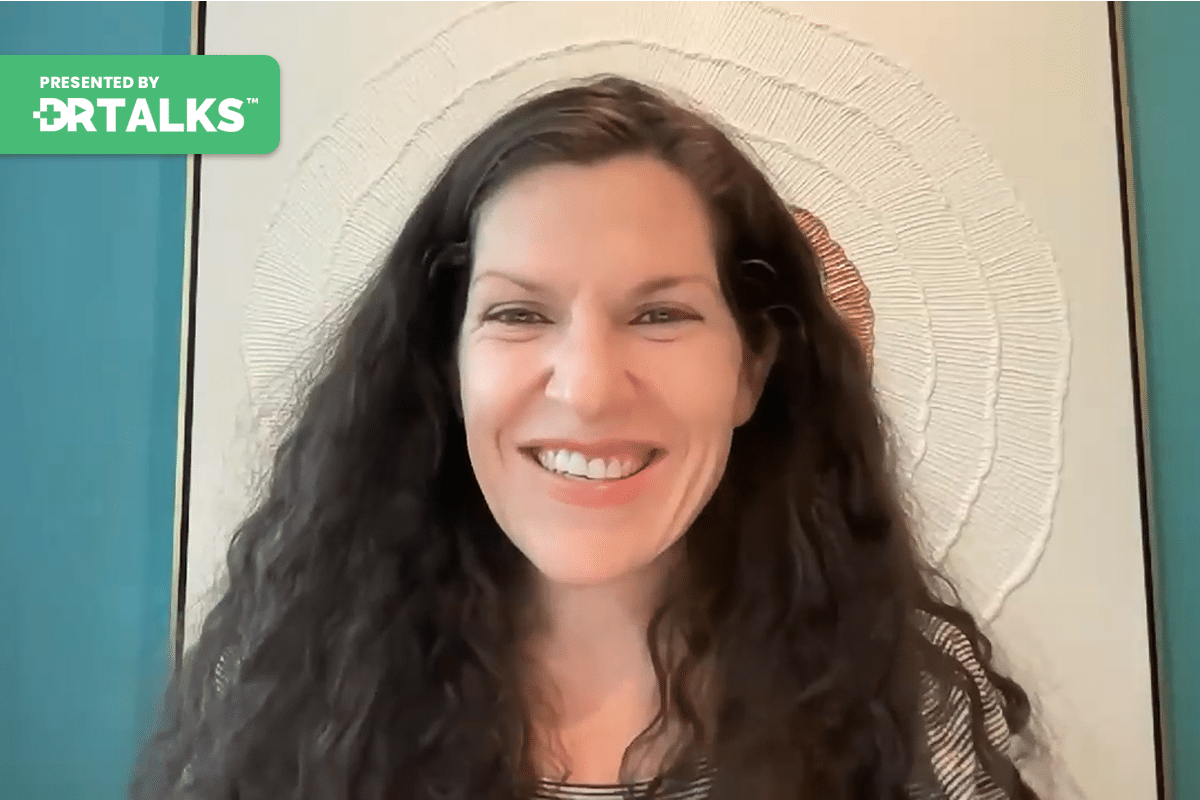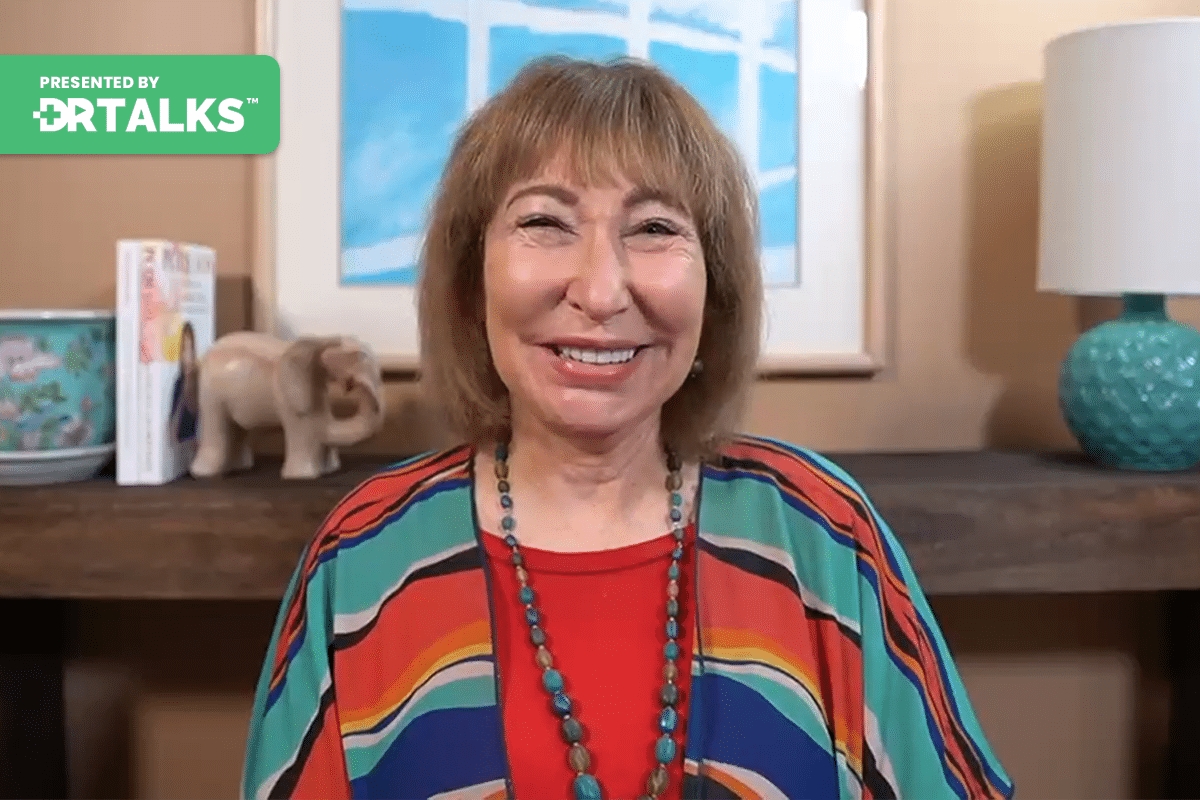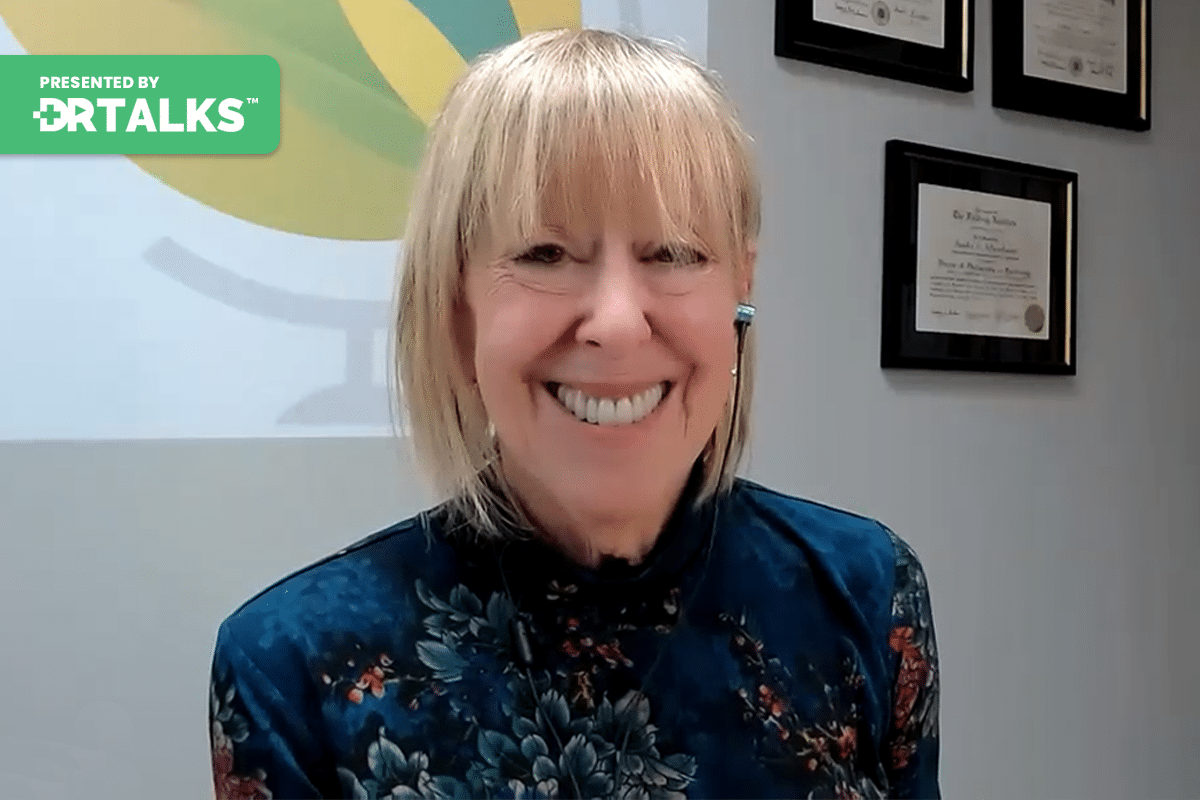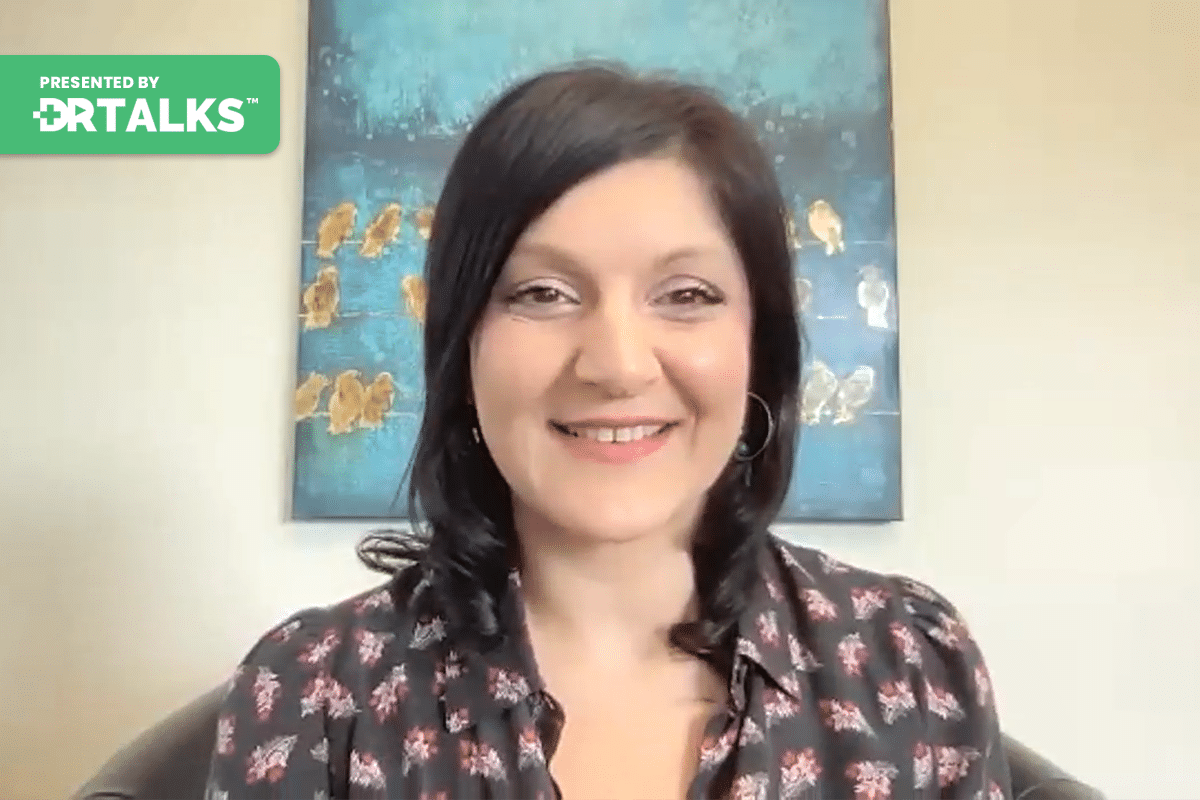Join the discussion below

Kashif Khan is the Chief Executive Officer and Founder of The DNA Company, where personalized medicine is being pioneered through unique insights into the human genome. With the largest study of its kind globally, The DNA Company has developed a functional approach to genomic interpretation overlaying environment, nutrition, and lifestyle... Read More

Megan Ramos is a Canadian clinical educator and expert on therapeutic fasting and low-carbohydrate diets, having guided more than 14,000 people worldwide. She is the co-author of the New York Times Bestseller Life in the Fasting Lane. Read More
- Empower yourself with the knowledge that Type 2 diabetes is reversible, and learn about the mechanisms through which fasting can reverse chronic disease
- Understand how to apply fasting in a strategic and effective manner to combat Type 2 diabetes
- Discover practical tips that make adopting fasting practices more accessible, sustainable, and beneficial for your health
Kashif Khan
Alright. Today is going to be incredible because we have two Canadians in front of you right now. And two Canadians is an exponential number that you can not even calculate because it does not happen often. We are going to dove into some amazing stuff. So far we have been talking a lot about everything around female health from fasting to fibromyalgia to menopause. There has been a lot of discussion around fasting as a tool. But Megan Ramos is going to tell us how we weaponize fasting against a very specific problem which makes it very actionable. I think this is awesome because a lot of people hear the buzz, the narrative around fasting but they do not get why like why does this matter to me? That is where Megan is really going to chime in and answer that question. First of all, thank you for taking the time and joining us.
Megan Ramos
Well, I appreciate you having me on. Thank you.
Kashif Khan
Yes, I mean, we are honored to have you here because of the work you have been doing. We are going to talk about how you laid out how fasting is a weapon in your arsenal against type two diabetes. Some people might say that is intuitive because we see diabetes as a metabolic disease and it is food related but there is so much more. There is also so much more to the answer in terms of why it is an unraveler or preventer. That is where your expertise is going to really shine a light. First of all, when we talk about fasting, just to lay the groundwork, is there something specific when you look at fasting in your mind, what does that mean to you in times? How many days per week? Before we get into how it is being used to solve this problem.
Megan Ramos
Yes. While we look at fasting to reverse type two diabetes as abstaining from consuming items, food items, or beverages that cause insulin secretion for an extended period of time. Our goal is, for a certain length of time, we want to minimize the amount of insulin that the body is secreting. It really only wants the body to secrete insulin for vital physiological functions. We do this for a period of at least 24 hours, two to three times a week. To reverse type two diabetes, many of the people that were in our clinic in Toronto or now work with us online, we would do 24 to 42 hours of fasting two to three times a week. On the other days of the week, we would try to get those diabetics to skip breakfast because that is when their blood sugar levels are highest in the morning. If their blood sugars are already going up their insulin internally is already going up. Why eat and add more fuel to the fire while we are trying to suppress those items? Let us burn off the sugar, lower that insulin, then have our first meal. Two to three times a week we will do a 24 to 42-hour fast. Then the other four or five days a week, we do 16, 18-hour fasting. We go back to the basics, we minimize the number of times a day, and we secrete insulin. We do not like to snack and graze for that six to eight-hour eating window that you see commonly splashed across magazines nowadays. We like to go back to how our grandparents and great-grandparents grew up with those square meals.
Eating lunch, eating dinner, trying to eat dinner a little bit earlier, if possible, is not always possible with different schedules, and making sure that we reach satiation at each meal so we can get these little mini fasts into the subsequent meal. In most cases, we can make a dramatic impact on insulin resistance in about six to 12 months. Diabetes, it takes us 10 to 15 years to even develop diabetes to test as a pre-diabetic lab test. But we can actually really dramatically improve someone’s glucose response to food and insulin response to food within about six to 12 months. I myself was a type two diabetic, that was the worst birthday gift ever when I turned 27, but I turned 28 as a non-diabetic meaning that if I was to go for an oral glucose tolerance test I would pass it with a normal healthy parameter, so I had a normal glucose response. It took me about six months to bring my A1C from six point four to four point six percent. I was a very newly diagnosed diabetic, it was a relatively quick transition for me. But myself and my colleague, Dr. Jason Fung. He is still based in Toronto, we had our clinic there, and we now do it online. Most people, we have had tons of patients who are on insulin longer than I had been alive, we are like over 30 years old at that time, I mean they are coming off of insulin in three weeks and not needing it ever again, and now it has been several years. I was actually just chatting with one woman on social media today who is a former patient of ours and it has been seven years and she is still off of insulin after being on it. She was on it for just over 20 years. It is pretty dramatic how quickly you can radically transform it and reverse type two diabetes.
Kashif Khan
What you are saying is phenomenal because what I am hearing is what we think is something that I have, I have diabetes or you have diabetes, is really just a state that you are in is what you are saying, meaning it is temporary so long as you continue to have the habits that cause it in the first place but it is not innate. The fact that you are reversing it 20 years after development, that is incredible. That is how close we are to good health, is that?
Megan Ramos
Yes. It is super cool. We are just chatting and I am a fourth-generation Torontonian through and through, my husband dragged me to the Bay Area a couple of years ago for his job and my mentality is changing so much even in Western medicine when I had to go see if I am pregnant and we are doing all this baby stuff. When I had to see the OB-GYN she asked me, “Do you have type two diabetes or have you ever had type two diabetes?” I said to her like, pardon me like excuse me, and she said, “Well, we now know that type two diabetes is a reversible condition, you develop it by eating one way and if you change your eating habits and patterns you can reverse it and go back to being a non-diabetic.” I just thought that was so cool. I started to laugh and I explained who I was and she actually knew Jason and we had a really interesting conversation. Even today at my OB appointment as a different OB, she said, I do not even need the Glucola test in my pregnancy, because my A1C is just so fantastic, and by fasting sugar so great, I just want to do the finger prick tests or share my CGM data, she is not going to force the oral glucose tolerance test on me. You can really reverse this.
I mean, we develop insulin resistance to a few main lifestyle factors. One is eating a lot of processed and refined foods both sugars and fats. Either of these argillized vegetable oils and all that garbage, these foods cause our bodies to produce this toxic level of insulin and then our food recommendations are like eat all the time, eat non stop throughout the day. And the more diabetic you are the more you need to constantly eat. Not only are we eating foods that cause our body to secrete tons of insulin, we are eating all of the time so we have the constant stimulus of it throughout the day and our cells develop insulin resistance. We need our cells to be insulin sensitive because when the insulin can interact with the cell in a healthy way the glucose can go into the cell and the glucose can be burned off by the cell. But when you get to that unhealthy state where the insulin in the cell no longer has a good relationship, a healthy relationship that glucose does not get into the cell, it just builds up and then it gets stored as fat. And then this is why people who have the excess weight and who have diabetes are so fatigued all of the time, they can get it, they are the primary fuel source that they are delivering to themselves as glucose, and that glucose can even get into the cell, I mean, they are consuming way too much glucose in the first place in the standard North American diet but it can not even get into the cells to provide them with energy in the first place. Everybody feels fatigued and broken, and I mean, growing up, they told me, enjoy it while you can because as soon as you turn 40 you are going to be fatigued and broken and gaining weight and developing a disease, this is supposed to be normal I am like, this is not normal, it is not normal for us to just suddenly turned 40 and have our health go completely sideways.
Kashif Khan
Yes, and you were like a high achiever getting diabetes at 28. You forget about 40. When you said earlier 24 hours, 36 hours, how do you make that easy for the first timer? Because when somebody first hears that, they forget about that, somebody is even told to skip breakfast or how do I survive without my post in the morning? Where does somebody get started on implementing that in a way where they will actually do it?
Megan Ramos
Yes. I like sharing this with people because I am thought of as a bit of an expert in the field, people just automatically assume, well, it must have been easy for you. At first, I was like this cocky 27-year-old, I had read about Beyoncé doing something like lemon juice, cayenne pepper master cleansing for seven days. I am like, well, Beyoncé could do that for seven days, I can fast for seven days, and then lots of like 17 hours and I probably would not be in drywall at that time, it was brutal. Definitely, I was kind of ground zero, our patient ground zero at our clinic and there is a lot we have learned since. Really during your fasts, when people are new to fasting, we encourage them to have things like bone broth or a low-carb base vegetable broth at the start. This is something I really had to lean into but what happened was a month into it, I was not using it anymore. I suddenly had this accumulation of bone broth in my refrigerator that I had to freeze because I just did not need it but just to help my body acclimate. When you first start fasting too, when we have this high insulin level that this toxic level of insulin in our body that is causing all of this havoc. The insulin causes our body to retain a lot of water. You start fasting, your insulin goes down, you are keeping your insulin low and your kidneys release a lot of water since the insulin has gone down. At the start, you are more prone to dehydration and that water loss through increased urination and sometimes loose stools, you see a lot of sodium loss and other electrolytes. Never feel guilty about leading into the broth as a training wheel. They tell patients it is just like kids on a tricycle, it is perfect like a two-year-old or three-year-old, I do not know when kids learn how to ride a bike, I will soon learn, but you would expect them to have a tricycle, they have those safety wheels on but by the time they are grades six, everybody’s got to be on their two-wheelers, for regular kids. Use it until you get your stability with fasting and then drop it.
Other things people can have are teas. Herbal teas are great. I know in Toronto this time of year is really hot. I am missing that heat because it is not hot right here in California. I hear you guys have a bit of a heat wave. But you can have herbal tea, iced too. One thing I would always carry around is packets of hibiscus tea, it is caffeine free. I can just get ice water or ice carbonated water wherever restaurant or wherever I am out with friends and family and just add in my hibiscus tea and have some lime with it and it tastes great and it is a perfectly great fasting aid. A lot of teas are great appetite suppressants too like green tea, mint tea, nettle leaf tea is a good appetite suppressant and it helps control blood sugar levels. Teas are wonderful. Coffee, sometimes people do have a glucose response to coffee and I find this is about 30% of the population. Those who do have a glucose response to coffee find that coffee stimulates their appetite rather than suppresses it, it is kind of hit or miss. I do not tolerate caffeine very well so I just stay away from coffee altogether. Pre-pregnancy, I would have a bit more matcha tea here and there, if I needed a little bit more of a boost for jet lag reasons or whatnot occasionally. But some of the population tolerates coffee very well, they find it to be a great appetite suppressant. Your teas, your coffee, and carbonated water are great. Carbonated water is an amazing appetite suppressant, especially when your tummy is gurgling. We work with a lot of executives and they would want to give a presentation with their tummy talking or they would be embarrassed being in meetings with clients, but just having some carbonated water, some jelly siders, or something can really help settle the stomach. Those are some great things you can have. A lot of our community has fun with things like olive brine and pickle juice, sugar-free pickle juice, especially in the summertime we will see all of these like funny mocktails fasting, they do mocktails using olive brine and pickle juice. Those are things that you can also have during your fast.
Kashif Khan
Everything you described was, here are the things, if you need something go ahead, here is a list of approved, make intervals, check mark, and go for it. Are there things that you should add meaning that will support the process, for example, minerals? I am just pulling things out of the air. Are there things that you should add that you would not think of because some people are saying the less, the better, if I get to just water I am doing best, are there things like that?
Megan Ramos
Yes. Electrolytes, some of them are more important than others. Sodium is kind of the gateway electrolyte. This is why I do not like a lot of electrolyte powders and solutions because they are really low in sodium. But if you keep your sodium levels good your other electrolyte levels tend to stay okay. But if your sodium levels start to dip too low then in order to protect your sodium, your kidneys actually excrete a lot of the other electrolytes. It does not make sense to have to take a whole bunch of things throughout the day, we focus on the sodium, the broths, the olive brine, the pickle juice, or even just salt and water. You can get salt capsules from Redmond, they are just vegetable capsules filled with their salt, they are called hydration capsules. They got hydration and hydration plus. I just like the hydration ones, I take those especially being a pregnant lady just to get in more sodium throughout the day, especially when I was in my first trimester and was not eating a ton and that was a great way to stay fairly hydrated, and easy to travel with and be out of the house. Magnesium is another important thing. 80% of the population in North America is deficient in magnesium. Pretty much 100% of type two diabetics are deficient in magnesium. They actually need magnesium to have insulin sensitivity to have better glucose metabolism. Magnesium is great.
There are different types of magnesium. The most common one you will see when you go into your local pharmacy is magnesium oxide which is actually a really terrible one. It does not get absorbed very well, and it can cause a lot of gastrointestinal distress, but it is really cheap. That is why we tend to see it everywhere but it is just not worthwhile. We will recommend magnesium glycinate or you will see it as bis-glycinate, that one is very well absorbed and it is gentle on our GI system. Sometimes people do experience a bit of constipation when they first start fasting so magnesium citrate is very well absorbed, it can help alleviate constipation. Magnesium malate, it is one that will be used in the afternoon for people who have chronic fatigue-like symptoms, seeing that being a little bit worsened with fasting there is magnesium taurate. There are different types of magnesium and you can buy different blends of them.If you do not want to take a supplement you can simply do things like an Epsom salt bath or a foot soak if you do not have a bathtub. I do that a lot down at King and Bathurst. We only have these big fancy showers, we do not have a bathtub so I had to do my foot soaks. You can buy a magnesium oil or make it yourself for magnesium gel or lotion too. You can go the non-supplemental route and address it through topical solutions.
Kashif Khan
You earlier said something that is intriguing which is okay, this once-a-week type fasting time, and the rest of the time you are going back to grandpa’s diet which is so against the common narrative today of condensing the eating window to as little as possible. Why do you think that that is a better way to go?
Megan Ramos
Well, you are minimizing the number of times a day that you are secreting insulin. It is not even about the volume of insulin that you are secreting, the constant stimulus of insulin that you secrete throughout the day generates insulin resistance even at low levels. A lot of people come to my program and they have been doing low-carb or ketogenic diets. I mean, some people do have an inflammatory response and saturated fat but, in general, they are, eating really good whole food, low glycemic diet, low insulin-secreting diet, and but they are still eating all day long and they have lost 50 of the 80 lbs but can not lose the last 30, are they broken? But it is just a chronic stimulus. I always joke about the singer, Adele. I think you have to have been living under a rock to not know the beautiful voice, that is Adele. She had this song come out called Hello and it won a billion awards. I loved her. When this song came out, I loved it. But it was in every elevator, every medical waiting room, every shopping mall. One day I was driving home from the clinic in Toronto and it was on eight of my 12 preset stations for Spotify and whatnot. I just wanted to scream goodbye at Adele. I had developed Adele’s resistance from chronic exposure to her song. When I met my husband too, I was living in Toronto, he was living in the San Francisco area and we only saw each other every three weeks and then finally emigrated to Canada, and we were going to live together for the first time on our one year wedding anniversary. My mother and aunt shared this joke, they are like, yeah, wait, we give it three months. You are ready to get back to California because we never had a conflict, we only saw each other every three weeks, there were always rainbows and butterflies and my mom and all of them, they were right, three months into we had to sit down and talk about his activities, my activities, our separate lives. Chronic exposure of insulin to ourselves creates that negative relationship. We want to minimize that exposure, so we are not constantly bombarding ourselves with insulin.
My grandmother was type two diabetic but she did not get diagnosed until her 70s. My dad is a type two diabetic. He got diagnosed in his early 50s, I got diagnosed at 28, 27. My GP said to me, my primary care doctor said, “Well, you are just genetically doomed,” and I said, “But how come my grandmother got an extra 50 years of good health?” And when I started fasting my grandmother was my only advocate, she said, “Meghan, we did not start to get fat and get sick until we started to have food all of the time,” Canada Day, and Labor Day, we would buy a special bag of potato chips for the holiday, we might have desserts on Sunday dinner when the whole family came over but it was not a throughout-the-week type of thing. I never sent your father to school with a pail full of food so he would have snacks all day long. He was lucky if he got an apple as a treat and if he was not a good kid he would not get that apple.
My colleague, Jason when he goes on holidays, when he takes holidays they go big like Cambodia, and Japan, but one year he just stayed home and his wife was busy with work so he was dad for the week and when he got back from his holiday I asked him, how it was and he said, “Oh my gosh, my kids do not stop eating,” I wonder there is this huge epidemic, he is like, “They get home from school we feed them before we feed them for dinner then we have got to feed them after dinner because they can not go to bed without something,” And he is like, never, he is like, I did not grow up like that, my parents did not grow up like that. Our eating habits have just really changed. We are not even eating real food anymore like our grandparents and great-grandparents did.
Kashif Khan
That, I mean, that kind of speaks to the first half of zero input for 36 hours and just zero insulin response. Then what about the second half of rather than continuing on our intermittent type fast that you are saying go ahead and have your three square meals, how does that add up?
Megan Ramos
Yes. People do need, we are funny in our society, we are the most overnourished and undernourished group of people on the planet in the sense that, we have got all this body fat, all of this access to food energy that’s been stored, but has like next to no nutritional value. Everybody’s got vitamin D deficiency, vitamin B12 deficiency, everyone like, women have anemia left right, and center. We have got all these nutrient deficiencies, thyroid disorders, and iodine selenium issues, it is just kind of wild. We want people to fast, and when we fast our insulin levels really get suppressed around the 24-hour mark. At that time, we are really able to liberate a lot of fuel from body fat stores. During that time, we switch into more of a, and it tends to be a degree of ketosis. We transition from more sugar-burning to fat-burning at that particular period of time. But then on our eating days, eating two or three times a day on your eating day but having meals minimized the number of times a day that you are eating insulin or you are secreting insulin, you are not constantly overwhelming the body making sure we are getting good micronutrients as well and we are getting in plentiful healthy dietary fat things like wild fish, or grass-fed beef, or duck eggs, or avocados, or coconut oil, depending on your dietary preferences. Getting in those real foods or that healthy fat so we can help absorb and assimilate those nutrients that were deficient. Sometimes we would have a person who was a vegan, but they were a processed food vegan. Their skin would be almost gray and we would not even pass them right away, I would do micronutrient testing on them and they would just be deficient and like everything across the board, Oh my goodness. It builds up their nutrients either through real food or a combination of real food and supplementation depending on their willingness to eat things like eggs or fish, for example. Once we get them out of this severe nutrient deficient state, then we would be able to fast them and they would be able to lose weight and see improvement in their blood sugar levels.
Kashif Khan
That makes a lot of sense. Some people are ready for the solution, and that is true in many areas where people want to lose weight but then they are so full of toxins that they release them into their bloodstream. People want to get rid of their migraine but then, well, you are living in a moldy house, you are solving, masking it and you are exactly right on. I was speaking to this person earlier today who has a weight loss program. What they said was they do not believe in fasting at all. They said they have had amazing results in people just eating smaller meals every three hours while managing their insulin response. You are laughing right now. In case anyone did not see that. Why is she experiencing success or is it that they are burning fat but they are metabolically unhealthy, what is going on there?
Megan Ramos
It could just be due to, any diet will work in the short term but whether or not it addresses the root cause of the problem in the long term, that is the big thing. I watched my father gain and lose a hundred pounds more than a dozen times in my life. He was a trial lawyer. Every trial he gained a hundred pounds, in between trials he would lose a hundred pounds. In between trials, he would try everything, he would go to Weight Watchers and even, he did Harvey Brooker. He did Doctor Poon in Toronto, Bernstein in Toronto, all of these different things. Any diet can work for a short period of time. Calorie restriction works for a short period of time, but does it actually fit the root causes of the problem? If it does not, then we do see the weight rebound. There are people even in our community that do really well, that do not have a whole lot of metabolic impairment but do really well even just skipping one meal a day and cutting out snacks. My own Uncle in his early 40s, he was inspired by what we were doing and he only had about 20 lbs to lose. He was on one blood pressure medication for some mildly elevated levels, and that was it. He had a bit of gout as well. He just cut out snacks, ate real foods, and just stuck to two meals a day, and doing that 18 hours of fasting was long enough to help with his insulin levels.
There are different levels of metabolic impairment as well. Most people once they have been diagnosed with borderline diabetes or just type two diabetes in general plus more moderate to severe insulin resistance. We hear it like I have had people, let us say they started their first diet when they are nine and they are 69 now and all they have done is gain and lose, gain and lose but now they are losing and they are sustaining their weight loss because they are actually fixing the root cause of the problem. There are a lot of programs too that exclude certain people. I have learned after two metabolically impaired people do not meet the criteria for their program kind of for success rates. That is one of the darker sides I think of the weight loss industry and weight loss programs that I have learned as well over the last several years.
Kashif Khan
Speaking of other programs, we are inherently lazy as humans which drives us forward because we are looking for fast and efficient ways to get things done. There are some people that would listen to this and say, hey, I came here to learn and look for options but I was going to take some of them and pick. What do you think is going on there? Is there something coming in the future where people are going to regret it or does it actually work?
Megan Ramos
Yes. It is a really good question. I think diabetes and medication intervention, in the short term, it is a decent drug for helping with blood sugar levels. Even at the start of COVID in Toronto, my dad got pretty depressed, as it was escalating. His diet went off track. Jason called and said, “What do you want me to do?” I said, “Give him Musa for three months until we all figure out how to live in this new normal.” We realized, we just can not drown our sorrows in food after the first few months and he did and it helps prevent things from going too sideways in those three months. He did lose weight being on it, that is for sure, but it helps with his sugars. And then after that most people have started to acclimate to the weirdness of the lockdown and he got back on track with his diet and lifestyle. But if I had a quarter for every day where I heard someone in our program say to me, I am on Ozempic or Mounjaro or Wegovy and I must be the one person that it does not work for. I actually have some celebrity clients and I get super pegged in the media for taking it. I am like, we are working our butts off to lose weight and be healthy and the media is just like, China makes it look like it was this drug result. And now the influence that I might have on teenage girls is really scary. But every day I get told a dozen times that it does not. We could all retire, I could retire, and everyone would like to pass a Hawaiian island if I had a quarter. It does not work unless, for a lot of metabolically impaired individuals for weight loss, that is what we found.
I think for people who are not metabolically impaired it can help with weight loss. It does cause the pancreas to secrete insulin as well. That is part of the mechanism of how it works to help lower blood glucose levels. If you have a pancreas, if you are a supertype two diabetic and you have beaten up your pancreas over the years from causing it to produce large volumes of insulin all of the time. We actually see the beta cells, the insulin-producing cells in the pancreas start to die out as someone gets older. I always tell everyone, your pancreas is like a tire and if you take it out for the occasional spin you do not wear that much tread, but if you are driving it back and forth across the country nonstop, everything single, you get to one end and you go back to the other eventually you are not going to have any more tread on that tire and we see this happen. It is becoming more and more common where people are just riding out their pancreas, they are eating all these things all of the time. I mean, we are told it is okay, but then their pancreas just is dead, it loses the ability to secrete insulin and they become insulin-dependent diabetics. It happened to us twice in the clinic and a handful of times online too and will do pancreatic function tests. There is no autoimmune disease, nothing like all of the diabetic antibodies are fine, but they are C-peptide which gives us an indicator of beta cell production and their fasting insulin, it is next to nothing like a type one diabetic. We get this pancreatic burnout as we get older. When someone has already got a compromised pancreas, do we really want to be nudging it even more to pump out more insulin? I do not think so. In the clinic, Jason would prescribe it as a short-term intervention. If you are fasting and you are reducing your carbohydrate load and your process fat load in the diet, you are already giving your pancreas a huge break. A little bit of a nudge through a medication short-term is fine but, I mean, it just leads to contributing to that pancreatic burnout. That makes me nervous about it. Sulfonylurea medications like glipizide, they do the same thing. I always tend to, if someone needs it in the short term, okay, but if we can work to get them off of it in the long term that would be ideal.
Kashif Khan
Yes. I think your answer is one of the most fair answers I have heard, which is that medication is your acute response but that is not where you end things. Okay, here is something to mask the pain, well, here is your band-aid but let us not figure out what actually went on. If you tackle it from both ends you can end that acute suffering, whatever is, but also resolve the problem, you can not just pick one. Then when speaking of medications, you have those Ozempic, which is just like a celebrity-touted weight loss thing. Then you have more on the biohacking side and not short term at all, but everyone long term staying on things like Metformin like David Sinclair, and these types of guys, they take it regularly, they are not ill, is that harmful, is that intelligent, what is going on there?
Megan Ramos
Yes. Metformin has been around now, feels like the dinosaur of medication has been around for a while. It does have some protective factors too against certain metabolic-related cancers. Neither Jason nor myself have found the anti-aging and longevity data on the use of Metformin to be all that compelling for us. With our patients and our clients, it really focuses on the nutrition, getting the right diet for that individual, optimizing the biomarkers, reversing the metabolic disease, improving the physical ability or physical activity, and the ability for the activity to be really important for our longevity, addressing all of the nutrient status and micronutrient status, keeping inflammation down, that is really what we focus on. I will say Metformin was the last medication we would take people off of generally speaking. If it causes someone a lot of gastric distress, we will take it off much earlier, because why should someone suffer, it is kind of pointless. I can not tolerate it at all. I have got some weird thiamine issues. Some people can not tolerate it. But some people did want to stay on it for those reasons. We just never found them to be all that compelling and found the other lifestyle interventions to have more of an impact.
Kashif Khan
Okay. Yes. I heard you earlier, we’re talking about the metabolic reality today like everything is a threat. We eat too much, our kids’ lunch boxes are filled up. Are you seeing these issues, excluding yourself to not skew the data, are you seeing these issues that are just, in general, hitting younger people?
Megan Ramos
Yes. It is really heartbreaking. I remember my husband lived in the Bay Area before and I would come down and I would be wowed and amazed by the great health, and now it has been ten years and that is definitely changing. But it is heartbreaking. Again, in 2016, there are only over 80,000 kids under the age of ten diagnosed with type two diabetes in the United States and around 8,000 of them had bariatric surgery for weight loss surgery which is wild. It is just heartbreaking, it is just really tough. I do know a lot of colleagues that I have in the field actually choose to homeschool their kids so they are not subjected to poor-quality foods. Some people will send their kids to private or charter schools where the parents might have a little bit more influence or pull over what the kids have. One of the home coaches on our team he has a daughter and they were not permitting her to eat refined or processed sugar, she could eat fruit and she could eat starch, that was fine, but they did not want her taking candy to school or eating candy and the school actually called child protective services on them. It is wild. I am pregnant and I was chatting with friends on the weekend and it is just scary. I want my kid to go to school and have that social interaction. I do not want to teach them, but making sure that we are really leading by example. My parents never drank coffee growing up, my parents never drank alcohol growing up, my parents never really liked sweets, they were more into savory foods that is how I got into trouble. I do not need coffee, I do not drink, it is just not that part of my upbringing as an adult, even having the ability to do these things, even in my 20s before I knew anything about nutrition I was always happy to be the designated driver because it just was not part of where I grew up. I am just hoping that. There is this really incredible psychologist, I can not remember, Dr. Eddie from the University of San Diego. She is a Holocaust survivor and whatnot. And she is like, your kids, what you tell them to do your kids are what you do and just leading by example. But yes, it is scary out there for kids right now.
Kashif Khan
Yes. But we have seen it too. This is the lesson from that for everybody is that the habits that we learn from Mom and Dad and Grandma and Grandpa are not enough for today’s reality. As much as they meant the best, they were not in a context where they had to think about what we have to think about. The threats are so much. Just a simple thing like you said, a kid going to school, what is in my lunch pail? If I do not have candies and cookies, the teacher is going to complain that they do not have snacks at snack time. Snack time did not exist and snack time is not required, in fact, snack time is poisoned. That is what we are up against. Understanding that the context is different, your challenges are different, and knowing that good health comes from the work you do, it is not innate, it is not at all innate if you are just walking around participating in today’s world. Illness is more innate than good health is. Yes. I wanted to thank you because this was an incredible conversation. The fact is, the work that you are doing is incredible. That it is even possible that you forge ahead and go against what the medical world wants to happen and allow for something much better is awesome. Thank you. Can people actually work with you or do you offer programs or how does this work?
Megan Ramos
Yes. We have a slew of different programs on our website, thefastingmethod.com. We do one on one coaching, and small group coaching, I read masterclasses once a quarter, and intermittent and fasting boot camps. And then we have a community, an ongoing community. It is a self-guided program, but there are over 35 live group calls a week and webinars. I have a webinar coming up in understanding your lipid results and how fasting and nutrition impact that. We do these educational sessions too. All the information is over at the thefastingmethod.com
Kashif Khan
Amazing. Thank you. This was really informative. You are obviously a wealth of knowledge. I urge everyone to go over there and learn more. We had another conversation with a gentleman named Jonny Bowden, who said that this is the plague of 21st-century metabolic health. It is the root of everything so get on it and fix it. Thank you, Megan. Awesome conversation. Thank you for taking the time.
Megan Ramos
Thank you so much for having me.
Downloads

